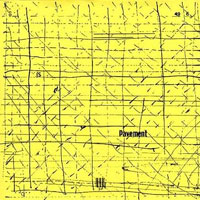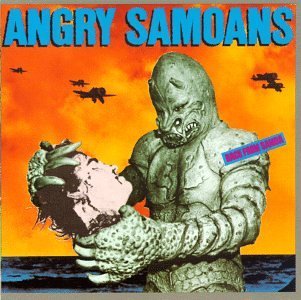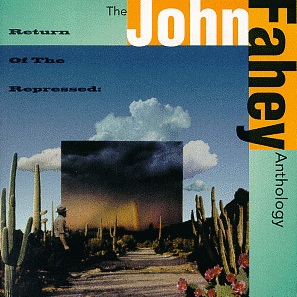Related Research Articles
Allen Ravenstine is an American keyboard player, most recognized for his work in the experimental rock group Pere Ubu. In 1991, he quit music to become a commercial airline pilot.

The Fugs are an American rock band formed in New York City in late 1964, by the poets Ed Sanders and Tuli Kupferberg, with Ken Weaver on drums. Soon afterward, they were joined by Peter Stampfel and Steve Weber of The Holy Modal Rounders. Kupferberg named the band from a euphemism for fuck used in Norman Mailer's novel The Naked and the Dead.

Borbetomagus are a free jazz/noise rock group. They are cited by critics as pioneers of aggressive improvised noise music.

Slay Tracks: 1933–1969 is the debut EP by American indie rock band Pavement. Pavement—at that time, a duo of just its two founding members Stephen Malkmus and Scott Kannberg (guitar)—recorded Slay Tracks with producer and future member Gary Young (drums) during a four-hour session. Pavement self-released the EP as a 7" vinyl record on the band's own record label Treble Kicker in 1989. The music of Slay Tracks was influenced by indie and punk rock bands such as Swell Maps and The Fall, and many of the lyrics were inspired by life in the band's hometown of Stockton, California.

The Holy Modal Rounders was an American folk music group, originally the duo of Peter Stampfel and Steve Weber, who formed in 1963 on the Lower East Side of New York City. Their sense of humor and unique blend of folk music revival and psychedelia gave them a cult-like following and has influenced bands like Yo La Tengo and Espers.

Naphtali "Tuli" Kupferberg was an American counterculture poet, author, singer, cartoonist, publisher, and co-founder of the rock band The Fugs.
Oh-OK was an American musical group from Athens, Georgia, formed in 1981 with singer/lyricist Linda Hopper, bassist/vocalist/lyricist Lynda Stipe, and drummer David Pierce. Other members later included drummer David McNair and guitarist Matthew Sweet. The trio began practicing together at parties in the college community in the spring of 1981. Their first club performance break came when Stipe's brother, Michael Stipe of R.E.M., needed an opening band for a show at the 40 Watt Club.
LiLiPUT, initially known as Kleenex, were a Swiss punk rock band formed in Zürich in 1978. The band experienced numerous line-up changes throughout their existence, with bassist Klaudia Schiff being the only constant member of the band over their entire history. Guitarist Marlene Marder joined the group shortly after their formation, and remained a member until their 1983 split. LiLiPUT's final line-up consisted of Schiff, Marder, and lead vocalist Astrid Spirit, and it was in this incarnation that the band recorded their only full-length studio albums, Liliput (1982) and Some Songs (1983).

Back from Samoa is the debut full-length album by the American punk rock band Angry Samoans. It was released in 1982 on Bad Trip Records.
The Insect Trust was an American jazz-based rock band that formed in New York, United States, in 1967.
Death Ambient is an American experimental and ambient music trio comprising Kato Hideki, Ikue Mori, and Fred Frith (guitar). The group was formed by Kato and Mori in 1995 and recorded three albums: Death Ambient (1995) Synaesthesia (1999), Drunken Forest (2007) with guest Jim Pugliese (percussion).
Jason Bieler is a singer, guitarist and songwriter who is most famous for playing with metal band Saigon Kick.

Fourth World, Vol. 1: Possible Musics is an album by Jon Hassell and Brian Eno. It was recorded at Celestial Sounds in New York City and released in 1980 by Editions EG, an imprint label of E.G. Records. "Fourth world music" is a musical aesthetic described by Hassell as "a unified primitive/futuristic sound combining features of world ethnic styles with advanced electronic techniques." The album received praise from many critics.

Teenage Head is the third studio album by the San Francisco rock band Flamin' Groovies, released in March 1971 by Kama Sutra Records.
Lora Logic is a British saxophonist, singer and songwriter from Wembley, London. Logic was a founding member of London punk band X-Ray Spex, and wrote the saxophone parts for their debut album, Germfree Adolescents. After leaving X-Ray Spex, Logic founded her own band, Essential Logic, which released one full-length album in 1979. Logic has been called "one of post-punk's most notable atypical girls."

The Return of the Repressed: The John Fahey Anthology is a compilation album by American fingerstyle guitarist and composer John Fahey, released in 1994. Fahey's career, health and personal life had been in decline. The release of The Return of the Repressed, along with an article in Spin magazine by Byron Coley served to provide a renewal of his career.

Railroad is an album by American fingerstyle guitarist and composer John Fahey, released in 1983. It was originally released as Railroad 1 by mistake. The Shanachie Records reissue is correctly labeled as Railroad. It was his last principal recording for Takoma Records, the label he founded in 1959.

Flamingo is the second studio album by the rock band the Flamin' Groovies. It was released in 1970. Following the group's departure from the Epic record label, it was the first of their two albums for Kama Sutra Records.

Peter Stampfel is an American fiddle player, old-time musician, and singer-songwriter.

Ocean of Sound is a 1996 compilation album compiled and produced by English musician and author David Toop. The two-disc, cross-licensed "various artists" compilation contains 32 tracks culled from a variety of musical sources, including dub, exotica, free jazz, and field recordings. Toop compiled the recordings to serve as both a historical survey of ambient music and an aural companion to his 1995 book Ocean of Sound: Aether Talk, Ambient Sound and Imaginary Worlds.
References
- ↑ AD> Furious Green Thoughts
- ↑ Articles, interviews and reviews from Jason Gross: Rocks Backpages
- ↑ Philips
- ↑ MC5- Wayne Kramer interview
- ↑ Tuli Kupferberg interview
- ↑ Tuli Kupferberg, Poet and Singer, Dies at 86, July 12, 2010
- ↑ "2006 Best Music Scribing Awards, by Jason Gross (Introduction)". Archived from the original on 2007-03-31. Retrieved 2007-03-21.
- ↑ Rockcritics.com- "Perfect Sound Forever’s Summer Session with The Dean of Rock Critics, Robert Christgau," February 25, 2008
- ↑ Delta 5
- ↑ Essential Logic – Lora Logic interview
- ↑ Arto Lindsay interview- Perfect Sound Forever
- ↑ Kleenex/Liliput- Marlene Marder interview
- ↑ Oh-OK- Lynda Stipe & Linda Hopper interviews